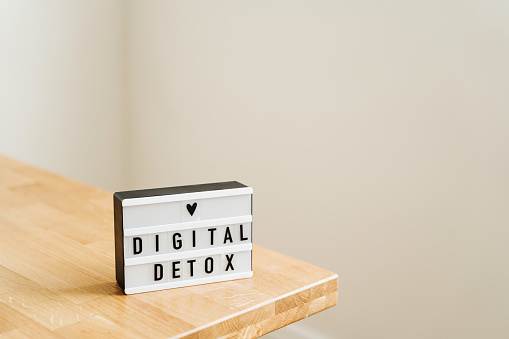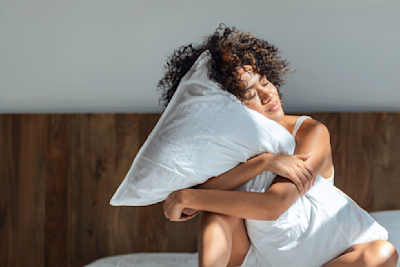
A Shared Vision For The Future
How does intentionally unplugging from cellphones shape the interpersonal relationships and the undergraduate college experience?
Written by: Jadelin Pikake Felipe
Design by: Rachel Wu
Edited by: Kathy Dethlefsen
I originally wrote about this topic which is based on my graduate school research[1] in three articles previously posted in Mudita’s Journal:
As a continuation to these writings, I, along with visual designer Rachel Wu[2], created a series of three infographics to summarize the major learnings from my research. Each infographic will be shared in separate posts here in the Mudita Journal and will include present day reflections on the different topics, particularly from the lens of living during the coronavirus pandemic in the United States. The research I conducted was done in 2016 and I thought it would be timely to reflect on how living almost a year with life turned upside down due to the pandemic changed our relationship with our mobile phones.
I now work full-time from home and screen time often feels like a constant. More of us are hyper-connected to our digital devices because it is the main way we stay connected to one another, both in our personal and professional lives. I wonder if or how the act of intentionally unplugging from our devices has evolved for us as individuals and for those around us as most of us have sheltered in place. Has it become more challenging? Is it easier and more natural to do because we’ve developed the confidence and skills to detach from our devices? Or has intentionally unplugging now become a survival mechanism; a default prerequisite to staying sane, managing, and thriving in our digitally connected lives? These are the questions I’ve been thinking about alongside the three questions I posed to the students in my original research on intentionally unplugging from phones.
How did unplugging impact students’ interpersonal relationships?
How did unplugging impact students’ college experience?
How would students like cell phones to be used in the future?
With our world turned upside down, I think it’s timely to first reflect on the third question first: How would students like cell phones to be used in the future? Then, work backwards to think about our shared experiences, communal spaces like colleges, and personal experiences with ourselves and those closer around us.
A Shared Vision For The Future
Cell Phones Future
Source: Jadelin Pikake Felipe , design: Rachel Wu
My current day thoughts…
“How do I think students, or people in general, would like to see cell phones used now and in the future?” I’ll be honest and say I think it will take time to see how this plays out. I believe reflecting on our relationship with our devices is still an important topic and one that should spark healthy changes to our behavior with our gadgets. The coronavirus pandemic shook our world and our every sense of normalcy; and this cannot be ignored. To me, it feels like we’re all just trying to hang on to the few strands we have left to make the best of every day.
Being sheltered in place in California due to the pandemic and limiting my exposure around others makes it less obvious to see how occupied people are with their phones. Since the pandemic, I have had the opportunity to ditch the city life and move closer to nature and am now living in a more rural town. This changed the scene I’m used to seeing every day. Gone are the days of my daily San Francisco work commute crossing paths with business folks and tech workers, a group of people whose livelihoods rely on being connected to their phones. Where I live now the demographic of the community is predominantly those who have reached retirement age. Unless I’m living in the undiscovered rural version of Silicon Valley I don’t know about, it’s safe to say that at the moment I can’t compare apples to apples when it comes to observing others’ phone usage.
“Oh my gosh! It’s so nice to hear your voice!”, my sister told me over the phone. I had sent her an audio message verbally catching her up with what was new going on in my life. This was before we decided to pick up the phone and stop sending long text messages back and forth to each other as we normally did. What’s interesting is that I had never used the audio message function on my phone prior to the pandemic and was inspired to start when a friend of mine sent me one (she never sent me an audio message pre-pandemic). It wasn’t until much later that I took some time to think about my sister’s comment about how nice it was to hear my voice. For a second I thought to myself “Had it been that long since she heard my voice?” and I then wondered how her hearing my voice made her feel and if or how it changed that very instance of us reconnecting with one another. How did hearing my voice change the dynamic between us?
I think this is what the students in my research meant when they envisioned a future where people used their phones for its basic functions, for people to be more self-aware, for a more positive human connection, where people respect each other’s time and feel more fulfilled learning from one another. With the absence of in-person interactions are we consciously and subconsciously trying to find ways to fill our lack-of-human-connection void? The optimist in me says once we all come out the other side of this pandemic, we’ll have new daily routines, ways we communicate and interact with others, a different set of expectations and needs in different parts of our lives; and we’ll then choose what we’ll take with us going forward. Individually and collectively, we’ll be shaping our shared vision for the present and the future.
Questions to consider:
Have you noticed your or others’ behavior with your cell phone change since the pandemic? If so, are there new or different ways you use your phone that have surprised you?
What activities and experiences have you enjoyed most without your phone and with your phone during the pandemic? Share your ideas!
Actions to experiment with:
Experiment with setting boundaries for yourself and your family when it comes to phone usage--make it fun! Consider identifying dedicated times phones can be used and an incentive system to reward healthy phone use.
The author: Jadelin has over thirteen years of professional experience in university and college student development, EdTech, and research. She holds a BA in Ethnic Studies from the University of Hawai’i at Manoa and a MA in Organization and Leadership from the University of San Francisco. Currently, she’s a part of the Golden Gate University Development & Alumni Relations team and is building a Linkedin-like online community for networking and mentorship for adult-learner students, alumni, faculty, and staff; and is looking for ways to incorporate digital wellness. Jadelin currently lives in Northern California and in her unplugged time she enjoys dancing hip hop, going to the beach, and finding delicious sushi and Korean food.
Related stories

The Best Analog Alarm Clock Gift for Dads Who Need More Sleep
Give your dad the gift of rest with Mudita Bell , a minimalist analog alarm clock that helps him wake up calmly, without screens, no stress, just peace.

What Happens When You Sleep?
Discover what happens when you sleep, from brain detox to hormone regulation. Learn how to enhance sleep quality naturally and wake up refreshed.

March is Sleep Awareness Month: Time to Reset & Rest
March is Sleep Awareness Month! Learn how sleep impacts health, focus & well-being, and get expert tips to reset your routine for better, healthier rest.
If you'd like to receive the best stories from our blog, keep up to date with our progress and get notified about our product releases and special discounts.